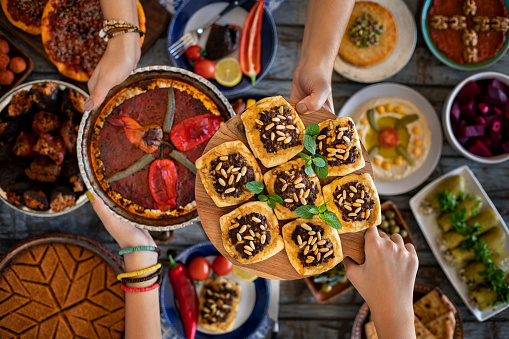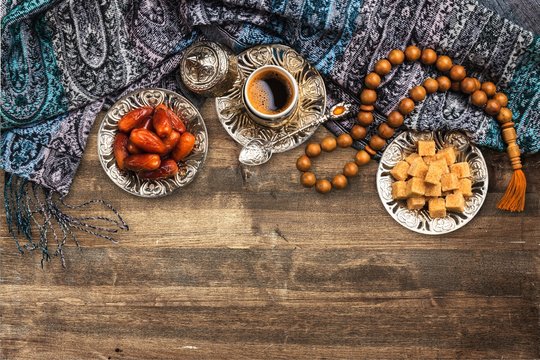
Some people tend to promote many diets that promise to lose weight quickly and easily, but in fact, there is no shortcut to losing weight, and the appropriate diet varies from person to person; There are many factors that determine each person’s needs; such as his current weight, height, age, gender, activity level, and general health status, and some diets may not be suitable for those who suffer from some diseases; Such as diabetes, heart disease, or people who are allergic to some types of food, eating one type of food in large quantities, or avoiding one of the main food groups may lead to health problems, and therefore some tips that can help to lose weight in a way will be mentioned. But these tips alone are not enough; indeed you should consult dietitians or health care providers to develop a diet appropriate for each person’s condition. But what about dieting during the month of Ramadan? And what is Healthy Eating During Ramadan?
It is important to know that a diet to lose weight is not suitable for all people, as research has shown that a certain diet can affect one person, without affecting another person, due to the difference in genes, and the lifestyle of each individual, But there are some general tips for a balanced diet, as meals can be divided into three sections, namely: breakfast, suhoor, and a snack in the evening, and the benefit of dividing meals is to help avoid a lot of snacks during iftar hours. In addition to making sure to eat the six food groups, that are: carbohydrates, vegetables, fruits, proteins, dairy, and oils; to learn more about the food rations and the appropriate quantities to be taken from the previous groups, you can proceed to read so that you can get a clearer idea.
Suhoor meal:
The Suhoor meal provides the body with the energy it needs throughout the day until breakfast, so the fasting person should not miss this meal, and should also stay away from eating sweets at the Suhoor meal, as they increase the feeling of hunger hours after the start of fasting, in addition to avoiding salty foods that cause thirst, and deep-fried foods, and care must be taken that the Suhoor meal contains the following groups: Vegetables and fruits. These two groups are rich sources of fiber , and therefore eating them contributes to maintaining the health of the intestines, and a feeling of satiety.
Complex carbohydrates: Complex carbohydrates are food that the body burns slowly, and its most important sources are: whole wheat bread, barley, quinoa, potatoes, corn, and legumes, such as black beans, chickpeas, lentils and others.
Proteins: Proteins are one of the important groups that must be eaten at the suhoor meal, as they help to feel full for as long as possible during fasting hours, and its most important sources: chickpeas, and labneh, in addition to milk, Cheese, yogurt, and eggs.
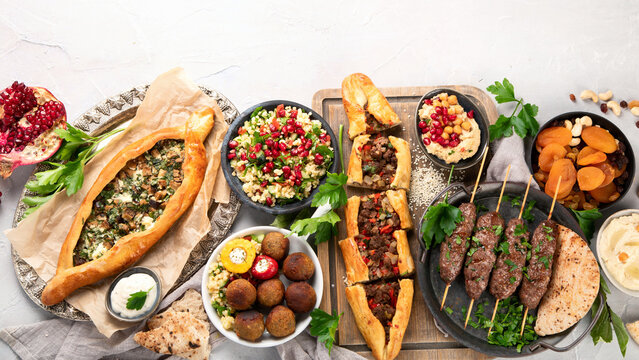 Examples of suhoor meals that can be eaten during Ramadan are:
Examples of suhoor meals that can be eaten during Ramadan are:
- A piece of whole-grain bread, yogurt, and a piece of fruit or vegetable. Breakfast cereal with fresh milk and dried fruits
- Oatmeal with low-fat milk, fruits, and nuts
- A piece of wholemeal toasted bread or toast, a boiled egg, and a piece of fruit or vegetable
Breakfast: The body needs 20 minutes to experience the feeling of satiety and that it has enough food, so the fasting person should not overeat during breakfast, as eating smartly may reduce pressure on the body, and give it more energy compared to eating large quantities at one time. It should also be noted that when you start breakfast, you must eat a lot of fluids, and foods that are low in fat and rich in fluids, in addition to foods that are a source of energy because they contain some natural sugars, and on the other hand, foods and drinks that contain sugar should be avoided.
The following points illustrate some types of foods that make up breakfast: Liquids: Water provides the body with the necessary hydration, without consuming any additional calories, or added sugars, and soup or soup is one of the well-known traditions in Arab countries, and it provides the body with fluids, in addition to being considered a snack to break the fast and start breakfast, and the traditional soup is composed of meat broth, in addition to a type of legumes, such as lentils or beans, in addition to a type of starch such as pasta or grains.
Dates or dried fruits: Dates have been eaten to break the fast and start breaking the fast since the time of the Prophet Muhammad, may blessings and peace be upon him, as they provide the body with energy because they contain natural sugars, in addition to being a source of fiber and minerals, such as potassium, copper, and manganese, and they can also be replaced with dried fruits. Which is also a source of fiber and nutrients, and these fruits: are apricots, figs, raisins, or dried prunes.
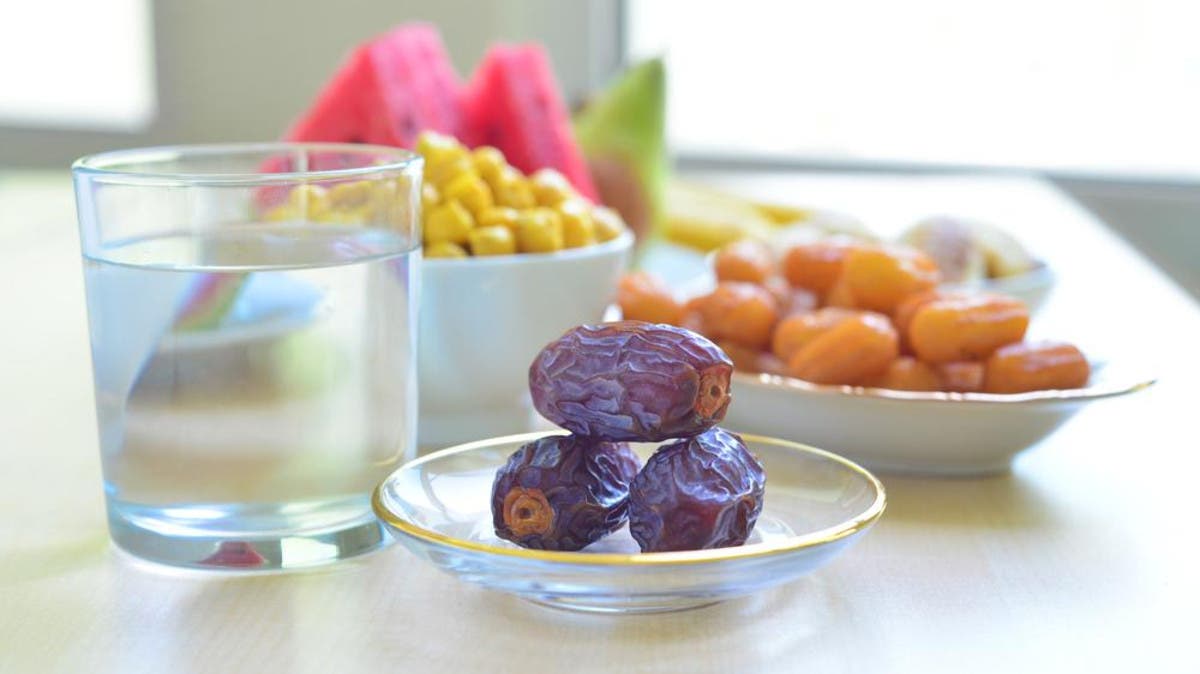
Salad: Eating appetizers after soup can prepare the stomach to start the digestion process, so appetizers rich in vegetables are recommended, such as: fattoush, green salad, and tabbouleh.
The main dish: It is preferable that Ramadan tables contain one main dish, as the diversity of food leads to excessive eating, and this dish should include carbohydrates, such as rice, pasta, or bread, in addition to proteins, such as red meat, or Chicken, or fish, and one of the easiest ways that can be followed to make sure not to eat large quantities of food, and to ensure that all food groups are entered, is to divide the dish into three sections, as one-fourth of the dish must contain a source of complex carbohydrates, and the second quarter contains Lean meat or its alternatives, and the remaining half should contain vegetables or salad, which ensures a healthy balanced meal.
![500+ Ramadan Pictures [HD] | Download Free Images on Unsplash](https://media.istockphoto.com/photos/ramadan-hari-raya-malay-grandmother-son-and-daughter-in-law-serving-picture-id1311912093?b=1&k=20&m=1311912093&s=170667a&w=0&h=Lnu91ed2XGxoZD4qaWw-0XPJx1C0GOLxnrkLahYzIIc=)
After breakfast, The meal after breakfast is late at night, but it is recommended that it be light, contrary to what some people think, who eat main dishes, fried foods, and then go directly to sleep, which leads to health problems, It is worth noting Many people resort to eating sweets at this time, but if they want to lose weight, they should reduce the intake of sweets as much as possible, and not eat them daily, or avoid them, such as cakes, biscuits, sugary drinks, and fruit juices, Which can be replaced with fresh fruits within the allowed daily rations, for example, you can eat two servings of fresh fruits per day, and one serving of fruits is equivalent to 3 dates, which contain 60 to 70 calories. It should be noted that everyone is different, and each has a different way of accepting food, so if you face a problem with fasting, or in applying these tips, it is recommended to speak to a nutritionist or a health care provider for more specific advice based on the individual case.
Frequently asked questions about dieting in Ramadan Is there a diet to lose 10 kg in Ramadan?
The average normal weight loss rate for an individual is between 0.45 to 0.90 kilograms per week, which is equivalent to 1.81 to 3.62 kilograms per month, There are a number of factors that make a difference in the ability to lose weight from one person to another, including the person’s weight, and the plan In addition to what a recent study indicated that men lose weight faster than women, but women tend to maintain the weight loss in the long term more than men.
Is there a diet in Ramadan to lose weight quickly?
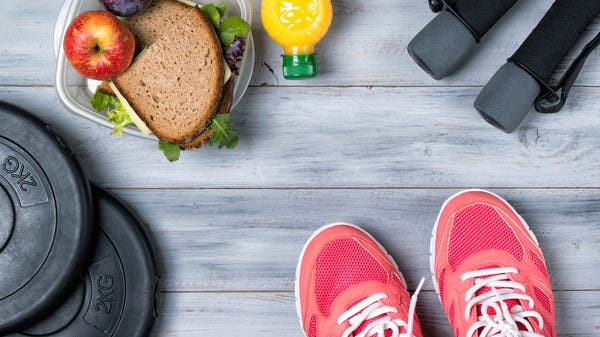
It is worth noting that the process of safe weight loss takes time and effort, by making lifestyle changes, including proper nutrition and physical activity, which enables a person to lose excess weight and maintain it in the long term. An overview of the diet The principle of dieting or a healthy food diet depends on providing the human body with the nutrients it needs during the day while staying within the daily calories consumed in order to lose weight, and this healthy diet includes lifestyle changes, and it reduces the risk of many diseases. Chronic non-communicable diseases, such as heart disease, diabetes, and cancer, require people who want to lose excess weight to reduce the number of daily calories consumed from foods and drinks, in addition to increasing physical activity, as it is possible to reduce the calories Calorie intake of approximately 500 to 1000 calories per day, which leads to a loss of approximately 0.45 to 0.90 kilograms within a week.


